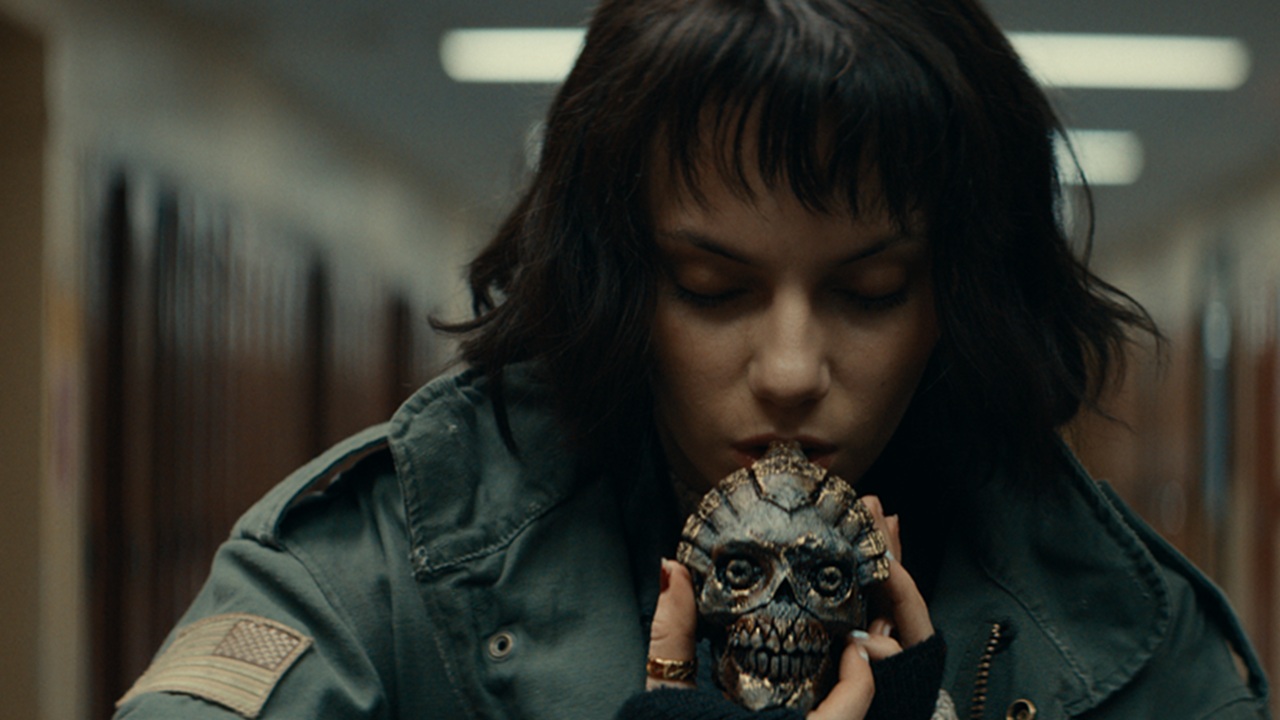A beginner’s guide to Dischord Records in five essential albums
The story of Dischord, home of harDCore, and the most ethical institution in the music industry, told via five essential records
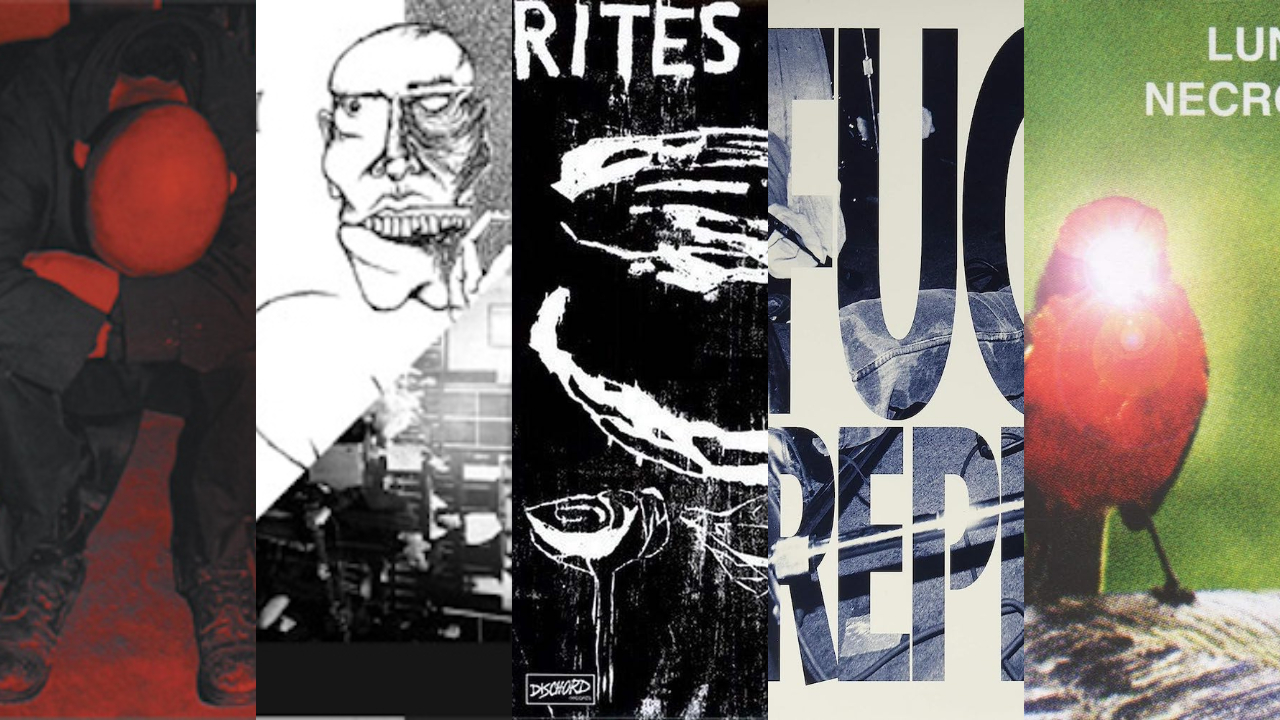
Select the newsletters you’d like to receive. Then, add your email to sign up.
You are now subscribed
Your newsletter sign-up was successful
Want to add more newsletters?

Every Friday
Louder
Louder’s weekly newsletter is jam-packed with the team’s personal highlights from the last seven days, including features, breaking news, reviews and tons of juicy exclusives from the world of alternative music.

Every Friday
Classic Rock
The Classic Rock newsletter is an essential read for the discerning rock fan. Every week we bring you the news, reviews and the very best features and interviews from our extensive archive. Written by rock fans for rock fans.

Every Friday
Metal Hammer
For the last four decades Metal Hammer has been the world’s greatest metal magazine. Created by metalheads for metalheads, ‘Hammer takes you behind the scenes, closer to the action, and nearer to the bands that you love the most.

Every Friday
Prog
The Prog newsletter brings you the very best of Prog Magazine and our website, every Friday. We'll deliver you the very latest news from the Prog universe, informative features and archive material from Prog’s impressive vault.
Washington DC’s Dischord is much more than a record label. Over the years it has become a byword for how a record label should be run: a code of ethics, and a way of doing business that is fair, equitable and proves no-one need be screwed in the sticky world of creating and selling music.
Beyond this, it has helped, unwittingly, spawn a range of influential sounds and styles - from first-wave US hardcore to emo, post-hardcore and jittery, danceable indie rock - and suggested, to those who cared to probe beyond the music, alternative ways in which to engage with the world.
Founded by Ian MacKaye (Fugazi/Minor Threat/Embrace) and Jeff Nelson (Minor Threat) initially to release a posthumous single by their high school band the Teen Idles, and subsequently existing to document the capital’s thriving hardcore scene, the label has carried this torch for over 40 years, maintaining its integrity and changing innumerable lives, minds and listening habits along the way. Not bad for a label whose first release was titled Minor Disturbance.

Minor Threat - Minor Threat (1981)
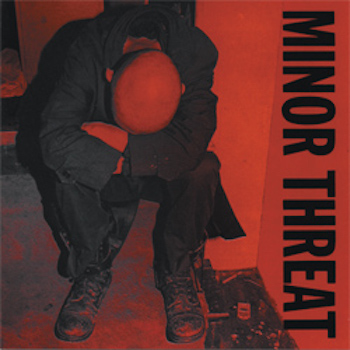
The label’s third release, Minor Threat, the group's debut self-titled EP, helped define US hardcore. Perhaps even more importantly, it also put a name to a lifestyle choice that would eventually sweep the world: straight edge.
Musically, this is Minor Threat at their rawest and most belligerent. Opening track Filler is a perfect punk song, setting out the band’s stall with the leaden clump of Brian Baker’s basslines, Lyle Preslar’s choppy guitar parts and Ian MacKaye’s foghorn blare. Neither the intensity nor the energy let up over the course of the EP’s eight incendiary tracks, and the closing ‘theme song’ with its hints of battered melody suggests where the band were headed next.
The song Straight Edge, of course, became synonymous with sober living. While the sentiment was as reviled as it was loved - many could not abide the hectoring tone of its message, nor the violence and idiocy of its more knuckleheaded adherents - there’s no denying that the message has proven to be a positive, sometimes lifesaving, one for many, many people.
Faith/Void - Faith/Void split (1982)
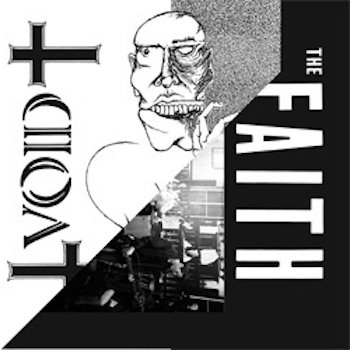
The first few years of Dischord’s existence flared white-hot, like debris burning up as it hits the Earth’s atmosphere. EPs by State Of Alert, Government Issue and the legendary Flex Your Head compilation helped set the bar for generations to come, while ‘half number’ split releases with Touch & Go and Xclaim! Records helped Necros and SSD put their own regional scenes on the map.
One of the genre’s crowning achievements landed in 1982, a split LP featuring Maryland’s Void and beloved DC hardcore act The Faith, fronted by Ian MacKaye's younger brother (and Minor Threat EP 'cover star) Alec. If Void’s feral, tangled, blistering take on the form tends to generate the most rabid reactions (if the insanity of Who Are You? and Jon ‘Bubba’ Dupree’s livewire guitarwork don’t move you, then frankly there’s no hope…) then The Faith’s snarling thrash remains an underrated treasure. MacKaye’s sneering, bandsaw vocals sound primed to tear out your throat, while cuts like Confusion show that Void certainly weren’t the only ones with surprises up their sleeve.
Rites of Spring - Rites of Spring (1985)
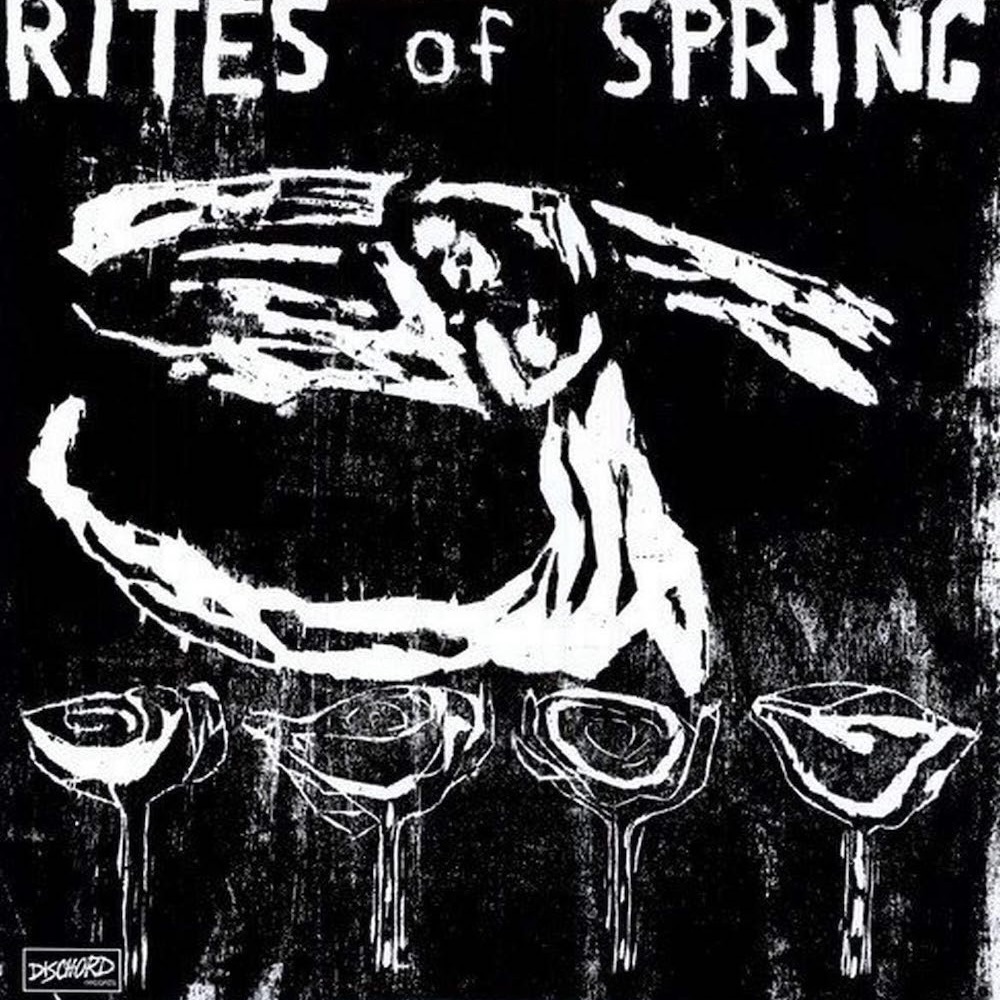
All good things, as the cliche runs, come to an end. While thrilling, different hardcore continued (and, importantly, continues) to be made long after the global explosion of the early 80s, for many in DC the first flush of excitement rapidly gave way to rote sonics, rote behaviour, and rote violence.
Rites Of Spring (featuring future Fugazi duo Guy Picciotto and Brendan Canty) took their name from a Stravinsky ballet, and the suggested sense of renewal wasn’t lost on them. Hurtling, raw and desperate, anyone lucky enough to catch one of the band’s 19 performances was immediately galvanised by the passionate, powderkeg punk they witnessed - intense and frenetic, but introspective rather than swinging fists blindly at the outside world. Key to DC’s rejuvenative ‘Revolution Summer’ (a term coined by Fire Party’s Amy Pickering) the band have, alongside Embrace, Rain and Maryland acts like Moss Icon and The Hated, since been recognised as the founders of ‘emo’ - a term everyone involved seems to despise, yet one whose shadow they are unable to escape. Their sole album is a masterpiece, with Deeper Than Inside, Drink Deep, Persistent Vision, Remainder and seven minute closer End On End among its highlights.
Fugazi - Repeater (1990)
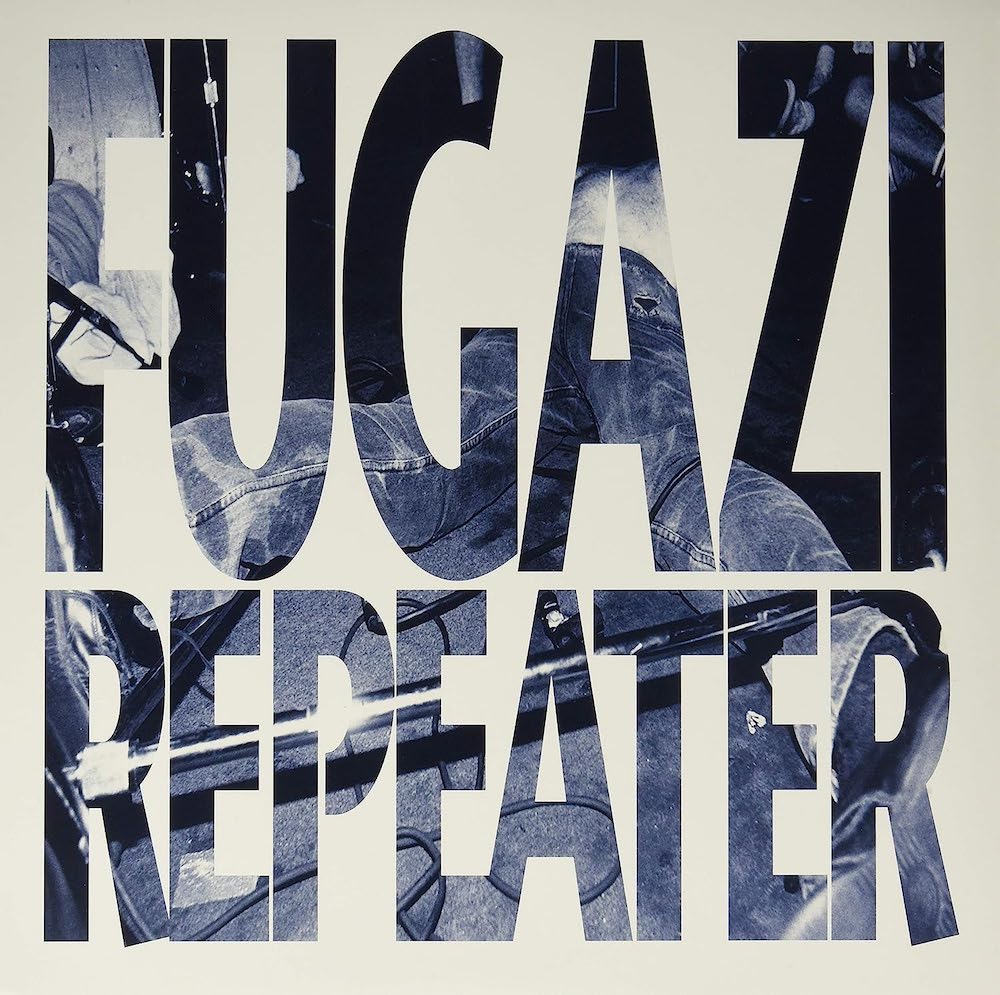
The rise of Fugazi chimes with Dischord’s third phase, one marked by ongoing change and experimentation. A meeting of souls who’d previously performed in Minor Threat, Rites Of Spring, Deadline and One Last Wish, Fugazi melded lithely muscled punk with staccato funk, reggae rhythms and artful jabs of squalling noise - a taut, artful sound that would help guide the genre known as post-hardcore.
The band’s first full-length album after three well-received EPs, Repeater is a formidable statement of musical, political and philosophical intent. Rolling basslines beg listeners to dance rather than mosh, while the interplay between Ian MacKaye’s blunt-force vocal approach and Guy Picciotto’s more sinuous meditations was unpredictable yet perfectly balanced. Calling out gun crime, human greed and crass consumerism the band’s message was as incendiary as its music - check out the anthemic Blueprint for proof.
Lungfish - Necrophones
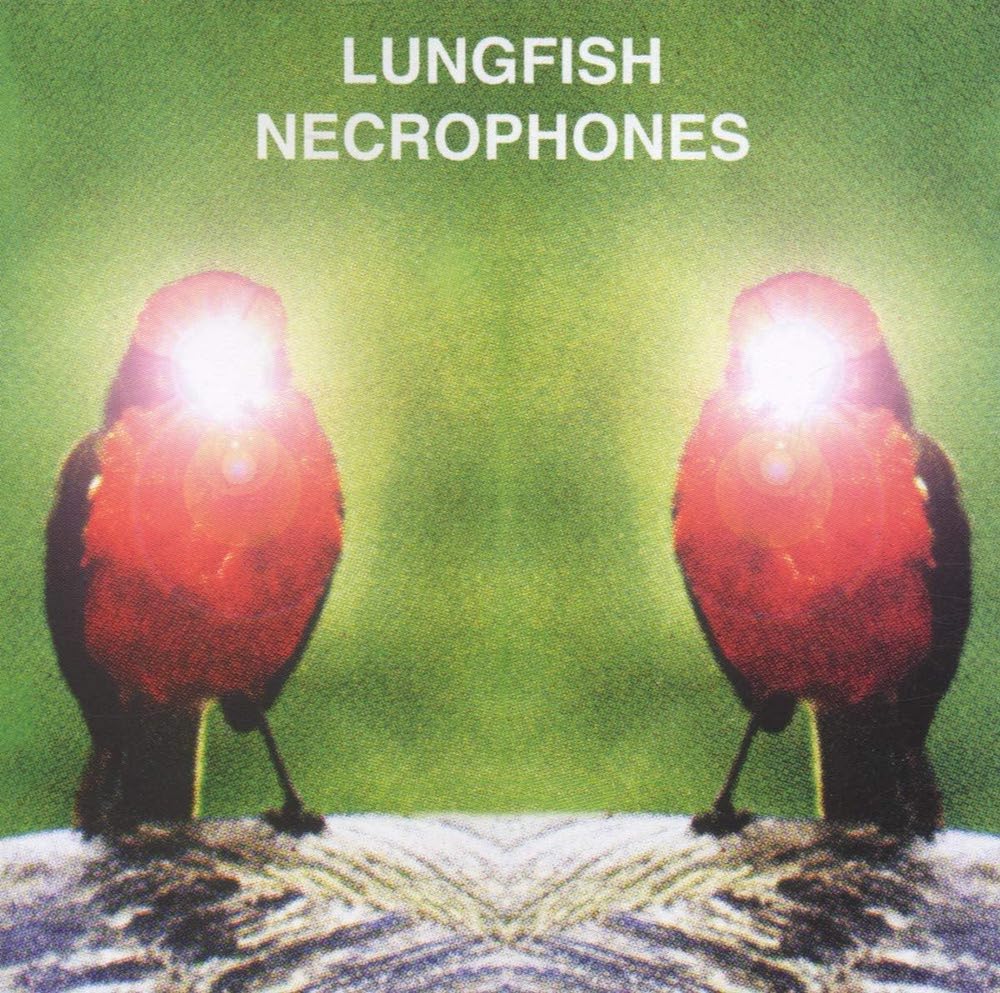
In some ways, the true joy of Dischord Records comes once you’ve made your way through the big-hitters. Peeling back the layers and digging into the label’s many lesser-known gems - Jawbox, Nation Of Ulysses, Shudder To Think, Circus Lupus, Red Hare, Fire Party - opens up different sonic vistas, as well as an array of new, winding pathways when you begin to explore related bands and affiliate labels like Sammich, Slowdime, DeSoto and Simple Machines.
Lungfish are perhaps the band that exemplify this seemingly unending side quest, sounding very much like ‘a Dischord band’ while simultaneously unlike any other band before or since. Though their constituent parts rarely varied - repetitive guitar patterns; mesmeric bass; Daniel Higgs’ strange, shamanic meditations on love, sex, death and rebirth - the band underwent a slow metamorphosis over the course of their 11-album career. While the band's second LP Talking Songs For Walking is perhaps the standard choice, Necrophones represents a band that have pushed through post-hardcore and bleary psychedelia to become their one true self, with songs like The Way and All Day And All Night Long attaining a strange simultaneous state of nursery-rhyme simplicity and third eye-opening scope.
The latest news, features and interviews direct to your inbox, from the global home of alternative music.
Alex Deller writes features, interviews and reviews for various print and online publications including The Guardian, The BBC, The Independent, Metal Hammer, Quietus, Rock Sound, Rue Morgue and Bandcamp.

